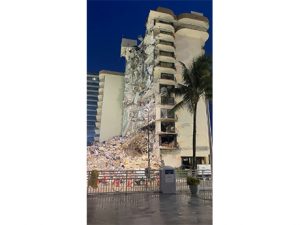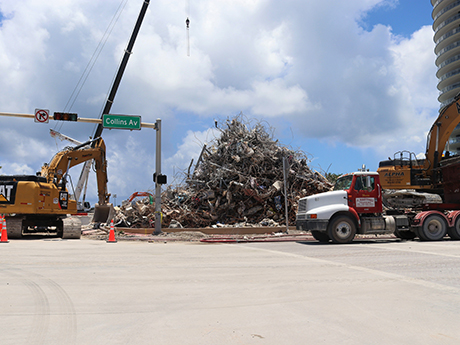By Jim Prichard of Ball Janik LLP
The 13-story, L-shaped Champlain Towers decorated the Surfside coastline. In the early morning of June 24, 2021, the pool deck suffered a partial collapse, triggering more destruction in the structure’s central section and eastern wing. In less than 30 seconds, approximately half of the 136 units in the building were destroyed, leaving 98 residents dead and establishing a horrific legacy as one of the deadliest structural engineering failures in U.S. history.
In the wake of the tragedy, Miami-Dade County Mayor Daniella Levine Cava ordered an immediate audit of all high-rise buildings that were more than 40 years old and five stories tall constructed by the developer. The attention to South Florida development prompted a review of hundreds of older buildings.
There was also an onslaught of editorial investigations, including features by The New York Times, The Wall Street Journal and the Miami Herald. Florida International University conducted its satellite analysis of the site as well.
All investigations, first-hand experiences, and post-collapse engineering findings reported that there had been concerns about the structural integrity of the building and that the collapse was based on faulty construction and deterioration.
As a law firm, our biggest concern is that many other buildings across Florida were built during a similar period and with similar designs, construction methods and materials. The inferior reinforced materials combined with the Florida climate — comprising saltwater and dampness — can destroy the integrity of even the sturdiest structures.
New legislation in place
Now, on the anniversary of the tragic collapse, Florida has passed Senate Bill 4D, establishing new structural inspection requirements and inspection of reserve funds held by condominium and cooperative associations. This includes the requirement to use those reserve funds only for their designated purpose.

Champlain Towers in Surfside, Fla., collapsed on June 24, 2021. The destruction resulted in the death of 98 residents.
Once a building surpasses 30 years in age, a “Milestone Structural Inspection” must be conducted for each structure that is three or more stories tall, and inspections must be completed again every 10 years. If a building is less than three miles from the coast, the milestone inspection must be done at the 25 year-mark and every 10 years thereafter.
In addition to the milestone inspections, every 10 years an association must have a “Structural Integrity Reserve Study” conducted to examine the funds set aside for required repairs to maintain the structural integrity of a property.
Planning for the costs of conducting the inspections and ensuring funds are available for needed repairs are paramount for ownership and asssociations. While we have advised clients about several aspects of condominium maintenance and association practices for years, this new law has established specific legal requirements that require compliance. Failure to comply could bring serious legal and liability problems for an association.
Win-win scenario
In our experience working in the legal field of real estate and land use for nearly 40 years, the constituent interests are closely aligned. Developers, builders, subcontractors and other industry participants want to create high-quality projects they can confidently develop and successfully sell, knowing Florida owners will have safe homes to enjoy for generations to come.
Insurance companies want to avoid litigation and claims that arise from faulty construction. Owners want to have confidence in their investment, and should a problem arise, they will have the necessary resources and courses of action to remedy the situation.
In response to the Surfside collapse, this bill establishes a framework for ensuring properties are maintained and Florida residents are protected. However, it will require associations to plan and act according to the law or face consequences that may ultimately be more costly.
Jim Prichard is Ball Janik’s LLP’s Managing Partner, and he maintains a broad practice in all aspects of construction, hospitality and real estate law. He may be reached at jprichard@balljanik.com.



